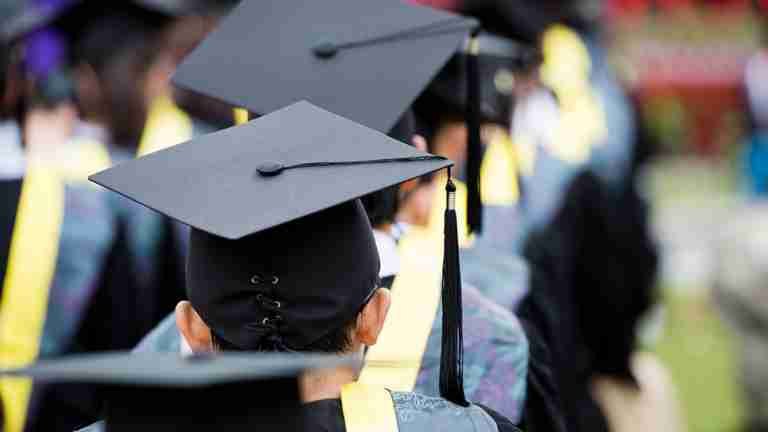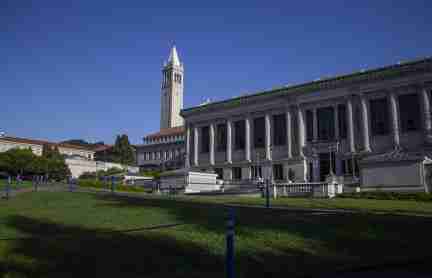

On Friday, March 13, campuses across the United States began issuing their COVID-19 shutdown statements. Many students were on Spring Break at the time, and were told the break would be “extended”. As they said their farewells, they assumed they would see each other soon—only to find themselves, two to three months later, watching their own graduation from bed.

Transitioning from Spring Break to full online learning (for the first time) did not have the disciplinary effect that going back to school in person does. College is meant to teach time-management, but it is a completely different conversation when structure is completely removed from a student’s schedule. Isolation created the perfect incubation environment for a myriad of mental illnesses to spike: ranging from depression and bipolar disorder to anxiety and schizophrenia. The fact that there was a nationwide shortage of items at grocery stores due to hoarding and overwhelming demand made cooking nutritious meals while studying more difficult. “Going into the grocery store, nothing that we used to cook was available. Not having proper nutrition on top of being unable to really focus and understand what was happening in our Zoom classes was hard,” says Jonel Ednalino, who recently graduated from University of the Pacific in an online ceremony.
It is widely known that graduates face a lot of uncertainty even in the best of times. The graduates of 2020 matriculated into a massive hole in the U.S. social safety net during the biggest financial downturn since World War II. Students lost on-campus work-study jobs that supported them through school, hadn’t been working long enough to quality for full unemployment insurance, and missed out on the stimulus check because they are still listed as dependents on their parent’s tax returns. They had no savings, and many job offers were rescinded as businesses cut costs. Going home to their parents’ houses felt like being 16 again. Ilana Goldberg, a recent graduate of Tufts University, told TIME Magazine, “We’re not in the system anymore, but we’re not far enough out of it to have our footing in the world.”
The senior class of 2020 was asked to say goodbye to these four formative years of their lives in just two days. They missed out on two months of traditional senior celebrations including Spring Concert, taking pictures for graduation, going to graduation fairs, studying for finals with friends, and most importantly, walking across a stage in a cap and gown. Many of these seniors are the first in their family to graduate from a four-year college, at least in America. According to Migration Policy Institute, 78% of immigrants in the U.S. are between 18 and 64 years old. Their families moved across the world in pursuit of the American Dream, sacrificing everything for a better future for their children. Many of these students come from lower socioeconomic backgrounds, meaning their family is more dependent on them for financial support and care-taking. They grew up fearing deportation and watched the recent administration threaten their DACA status.

UC BERKELEY CAMPUS
Jonel Ednalino’s parents worked hard to put him and his siblings through school, telling them to “treasure your education because no one can take it away from you.” He wonders, “How is a little slide show with a picture going to be enough for my parents? To this day it still doesn’t feel like I’ve graduated.”
Shivani Patel, transitioning into graduate school, explains, “My parents were definitely upset, because graduation not only shows my hard work but also theirs and the support they gave me to obtain my degree.”
Time and time again, this is the generation that has been asked to step up and inherit a world which sustains deep flaws inflicted by those who came before.
The graduating class of 2020 comes from an incredibly resilient and diverse generation. They were in pre-school on the day of September 11th, 2001, were by their parents’ sides during the Great Recession of 2008, grew up around school shootings and participated in March For Our Lives to protest in the name of their own safety on campus, went on strike over climate change, and are currently participating in the largest civil rights movement in U.S. history. More importantly, as COVID-19 uproots daily life, it is disproportionately affecting low-income BIPOC (Black, Indigenous, People-of-Color). These young, fresh-eyed seniors are clear about the hidden inequalities of their higher education, the insurmountable national student debt crisis, and are agitated for their friends and themselves, graduating into a global pandemic. COVID-19 is the catalyst for exposing pre-existing failures and inequalities in the system. The class of 2020 may have been secluded, but they are far from apart. What holds this generation together is far more significant than sharing a classroom. This is a generation that, upon told change is difficult, are responding with “Change is the only option.”
 Fire brigade in Shanghai holds group wedding
Fire brigade in Shanghai holds group wedding Tourists enjoy ice sculptures in Datan Town, north China
Tourists enjoy ice sculptures in Datan Town, north China Sunset scenery of Dayan Pagoda in Xi'an
Sunset scenery of Dayan Pagoda in Xi'an Tourists have fun at scenic spot in Nanlong Town, NW China
Tourists have fun at scenic spot in Nanlong Town, NW China Harbin attracts tourists by making best use of ice in winter
Harbin attracts tourists by making best use of ice in winter In pics: FIS Alpine Ski Women's World Cup Slalom
In pics: FIS Alpine Ski Women's World Cup Slalom Black-necked cranes rest at reservoir in Lhunzhub County, Lhasa
Black-necked cranes rest at reservoir in Lhunzhub County, Lhasa China's FAST telescope will be available to foreign scientists in April
China's FAST telescope will be available to foreign scientists in April "She power" plays indispensable role in poverty alleviation
"She power" plays indispensable role in poverty alleviation Top 10 world news events of People's Daily in 2020
Top 10 world news events of People's Daily in 2020 Top 10 China news events of People's Daily in 2020
Top 10 China news events of People's Daily in 2020 Top 10 media buzzwords of 2020
Top 10 media buzzwords of 2020 Year-ender:10 major tourism stories of 2020
Year-ender:10 major tourism stories of 2020 No interference in Venezuelan issues
No interference in Venezuelan issues
 Biz prepares for trade spat
Biz prepares for trade spat
 Broadcasting Continent
Broadcasting Continent Australia wins Chinese CEOs as US loses
Australia wins Chinese CEOs as US loses